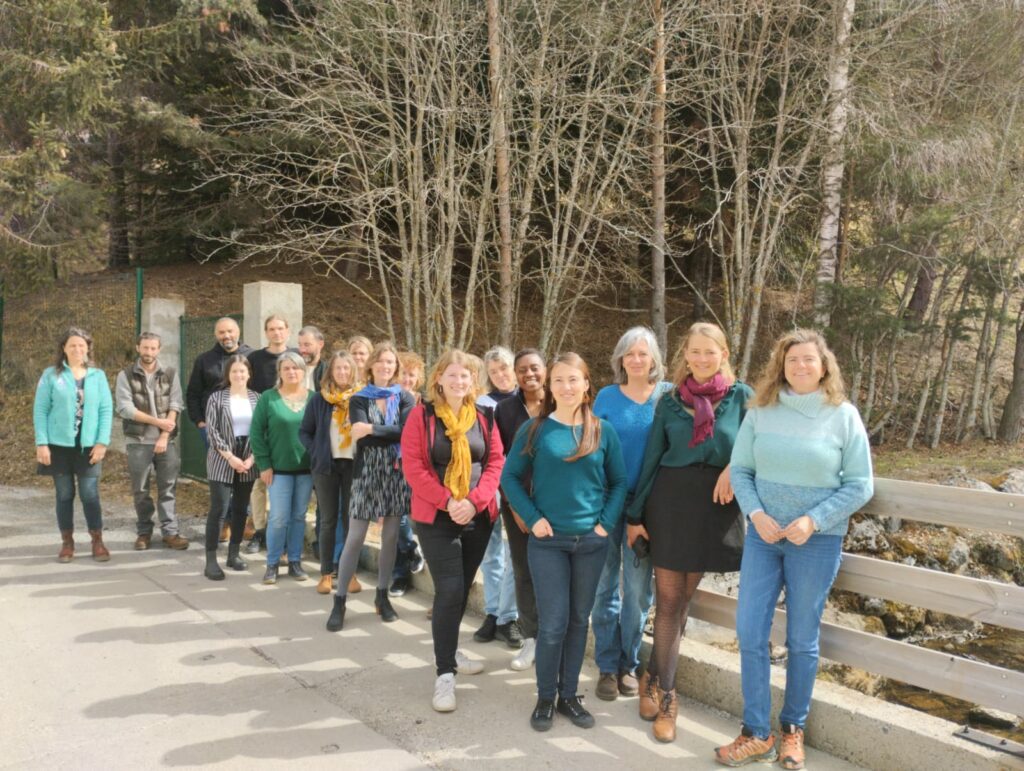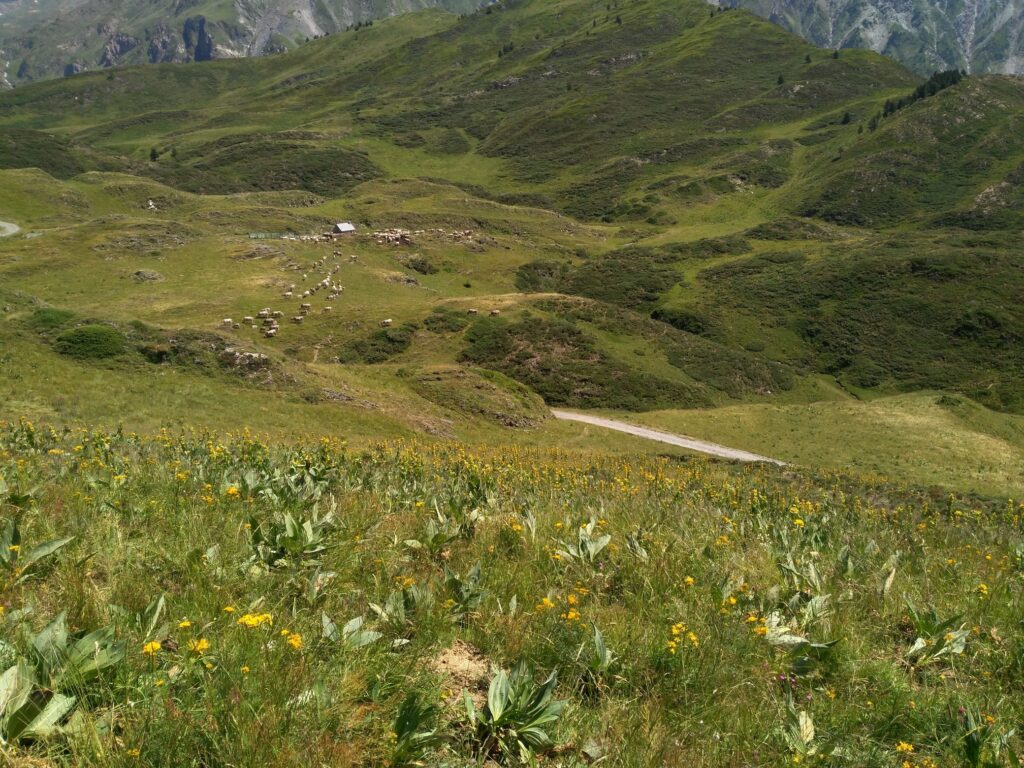
The Forest Science and Technology Center of Catalonia (CTFC) participates in the GESTES project (Sustainable cross-border management of wild species in natural spaces POCTEFA), which seeks to promote protection and biodiversity to reconcile the preservation of aromatic and medicinal species and the natural spaces in which they grow, with the commercial exploitation of wild resources in the participating regions (Catalonia, Aragon, Hautes Pyrénées, Pyrénées Orientales and Ariège). The project will develop three main aspects:
- Knowing the state of species conservation and the activity of wild harvesting,
- proposing a sustainable management and evaluating the cultivation, and, finally,
- transferring the results and raise awareness of the actors of the sector and the general public.
This project is 65% co-financed by the European Regional Development Fund (ERDF) through the INTERREG VI-A Spain-France-Andorra Program (POCTEFA) 2021-2027, with a total budget of €1,135,958.19.

Representatives of the entities working there met between March 19 and 21 in Matamala (France) to address the main lines of action for this project, which began in January 2024 and will last three years .
GESTES is coordinated by the Centre de Ciència i Tecnologia Forestal de Catalunya (CTFC) with the participation of the Conservatoire Botanique National des Pyrénées et de Midi-Pyréneees (CBNPMP), the Parc Natural Regional dels Pirineus Catalans (PNRPC), the Institut Tecnique Interprofessional des Plantes à Parfum, Médicinales, Aromatiques et Industrielles (ITEIPMAI), the Centre de Formation Professionnelle et de Promotion Agricole (CFPPA- Ariège-Comminges), and the Centro de Investigación y Tecnología Agroalimentaria de Aragón (CITA).
The coordinator of this project is Eva Moré, specialist of the Group of Medicianala and Aromatic Plants of the CTFC, with the technical participation of Roser Cristóbal, head of this working group of the Bioeconomy, Health and Forest Governance Program. The CTFC will lead the awareness-raising action and participate in all the planned activities, mainly in their implementation in the Catalan territory. The CTFC will have the collaboration of different associated entities: Associació de propietaris Forestals Serralada Prelitoral del Penedès, Associació Flora Catalana, Servei de Gestió de Parcs Naturals de la Diputació de Barcelona i la Direcció General d’Ecosistemes Forestals i Gestió del Medi del Departament d’Acció Climàtica, Alimentació i Agenda Rural.

GESTES will work with the aim of reconciling the preservation of species and natural spaces and the commercial exploitation of wild resources in the face of the current commercial overexploitation of some wild species that compromises the conservation of biodiversity in some natural ecosystems of the space POCTEFA.
It will intervene in different areas of knowledge (ecology, biology, regulation, cultivation, social impact and economy), proposing utilization guidelines for those species collected in greater volume or more vulnerable, studying the feasibility of their introduction cultivation in agroforestry scenarios and sensitizing the different actors of the value chain and also the general public.
With the execution of the project, sufficient information will be obtained to be able to compare the legal framework that protects the harvest of wild aromatic-medicinal species and ornamental greens on both sides of the border and propose new measures that act in a homologous manner, define management plans for the selected species adapted to the different situations and agreed between the actors in the sector, which allow the wild collection activity to be maintained and regulated so that it is sustainable.
At the same time, training activities and materials aimed at different target groups (managers of natural areas, owners, collectors, marketers, etc.) will also be carried out and the dissemination will be complemented with activities to raise awareness among consumers about the importance of knowing the origin wild plant raw material and that this has been obtained sustainably. Cross-border action is needed to avoid the migration of wild collection to less regulated areas that can withstand excessive pressure that will end up damaging agroforestry systems.
Principaux résultats obtenus par le CTFC:
- a3.1. Situació de la recol·lecció de plantes aromàtiques i medicinals silvestres a Catalunya. Report on the species and geographical areas experiencing the greatest harvesting pressure, based on surveys conducted with technicians, natural area managers, landowner associations and gatherers (in Catalan)
- E4.1. Description of the commercial circuits and value chains of the different wild‑harvested species: a document describing the value chains, the identification of the various actors, and the economic scale of the activity for each type of circuit (food, medicinal and green ornamental). Available in Spanish and French.
